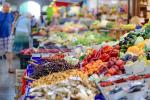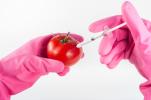Horizon Europe Like-A-Pro Project: From Niche to Mainstream: Alternative Proteins for Everyone, Everywhere
- Type Project
- Status Signed
- Execution 2022 -2026
- Assigned Budget 11.999.659,64 €
- Scope Europeo
- Main source of financing Horizon Europe 2021-2027
- Project website Proyecto LIKE-A-PRO
Can European eating habits be healthier and more sustainable? The EU-funded LIKE-A-PRO project will answer this question and more. It will explore the production of novel foods from alternative protein sources, such as rapeseed, mealworms, krill, microbes, fungi, fermented mushrooms, and peas. It will also investigate consumer needs and how to meet them with new products. The project will carry out activities to understand Europeans' eating habits and find ways to adapt the products they consume. Actors in the intermediate food system will also be involved to make alternative products an easy and economically viable option. The overall goal of the project is to mainstream alternative proteins, making them accessible, available, and widely accepted.
Key determinants, motivations, opportunities, and demographic factors influencing consumer behavior and choices were identified. An evidence-based typology of barriers and facilitators across various built environments was created, highlighting regional differences across the EU. Seventeen system maps for 13 EU countries were created in collaboration with stakeholders to identify levers that encourage the choice of alternative proteins. Protein extraction and processing methods from various sources were optimized, improving efficiency, reducing undesirable compounds, and addressing sensory issues.
Progress was made in scaling up ingredient production and in protein quality assessments (amino acid profiles, digestibility, antinutrient factors). The technological properties of ingredients were evaluated, and small batches of food products were developed. The operational framework for implementing Living Labs for Citizen Innovation in the Food Environment in 11 EU countries was developed, including the definition of visions, mandates, thematic focuses, target groups, implementation timelines, and operating procedures. A strategy for citizen recruitment and participation was developed. A train-the-trainer training program was implemented to increase the skills and confidence of lab implementers in carrying out the activities.
Some lab implementers have completed part of the lab meetings, while the rest are being planned for PR2. Significant progress was also made in stakeholder engagement and operational planning. The establishment of the Food Actors Network (FAN) involved several entities from various segments of the downstream food system value chain. Preparatory steps for the Transition Arena methodology were completed to empower FAN members to address challenges related to alternative proteins. Initial steps were also taken to develop 15 white papers and 10 fact sheets to disseminate the results of technical and social innovation. A socio-environmental assessment of conventional proteins was conducted using the True Price methodology.
This will serve as the basis for evaluating alternative proteins. The economic impacts of alternative protein development were monitored and analyzed through market trends and comprehensive audits to understand market penetration and pricing strategies. A review of EU food safety regulations ensured compliance with alternative proteins. A methodology was developed to assess the safety and novelty of proteins, focusing on allergenicity, toxicity, and digestibility. Data management practices and ethical guidelines were implemented to ensure compliance with ethical standards.
Growing consumer interest in alternative protein products as substitutes for conventional animal-based foods creates the perfect opportunity for EU diets to become more sustainable and healthier. However, despite the clear commitment to reducing animal protein consumption, greater efforts are needed to facilitate and accelerate the transition to protein consumption.
Even so, the integration of alternative proteins faces challenges in the product development phase, resulting in low availability and accessibility of acceptable products. Indeed, Europeans seeking alternative protein products face limited options in terms of product types, protein sources, flavors, and textures. To facilitate a food transition, the food industry must focus on diversifying alternative protein sources and developing attractive new products, thereby meeting consumer demand. LIKE-A-PRO aims to integrate alternative proteins and products, making them more available, accessible, and acceptable to all population groups worldwide. This will be achieved through the development of 16 new food products with ingredients from seven alternative protein sources.
The project will also investigate consumer needs and behavioral determinants that may affect the acceptance and integration of alternative proteins into their diets. The project will also develop various governance mechanisms that different actors can introduce to the market to facilitate the transition to healthier and more sustainable diets, using alternative proteins as a tool to achieve this goal. Activities will be carried out to understand the dietary habits of Europeans and find ways to adapt the products they consume. Actors in the intermediate food system will also be involved to make alternative products an easy and economically viable option.
Europeans' interest in alternative proteins is increasingly evident, and this trend is the perfect ground for dietary change toward sustainable and healthy food and nutrition systems, in line with the ambitions of the EU Green Deal, the Farm to Fork strategy, and EU climate goals. However, this interest is not reflected in European dietary patterns, as alternative proteins are consumed primarily by early adopters, while the majority is less receptive to alternatives or has limited opportunities to integrate them into their diets.
This gap between interest and consumption is due to obstacles in food environments, such as limited product offerings, suboptimal product taste, isolated product placement in stores or on menus, etc. Without overcoming these obstacles, alternative proteins will remain a niche. LIKE-A-PRO aims to mainstream alternative proteins, making them accessible, available, and acceptable to everyone (from children to the elderly and vulnerable groups) and everywhere (across Europe, in urban, peri-urban, and rural areas).
To achieve this, key stakeholders across the entire alternative protein value chain (growers, producers, chefs, retailers, consumers, researchers) will work together in a transdisciplinary consortium. To improve European food environments and encourage the consumption of alternative proteins, practical solutions will be designed jointly with citizens. This social innovation will be carried out in 11 living labs and four real-life food environments. To provide a diversified alternative protein offering, 16 new alternative protein products will be developed with seven sustainable, healthy, and novel sources.
To ensure the delivery of results, the project will actively engage intermediate actors in the food system (more than 35,000 companies) through co-creation and capacity building. To maximize impact, innovative communication campaigns will be launched in six countries, reaching 8 million citizens over four years.
Currently, the effectiveness of solutions to achieve more alternative protein-friendly, sustainable, and healthy food environments (FE) is limited. LIKE-A-PRO will boost the social readiness of a wide range of FE solutions, moving from attitude to action (to actual behavioral change toward increased consumption of alternative proteins). FE solutions will be jointly designed to be effective from the perspective of consumers and intermediate actors in the food system.
These AE solutions would not be effective if consumer acceptance of alternative protein products is limited. For this reason, LIKE-A-PRO will jointly design the best value propositions, supported by marketing strategies, which will be validated in living labs and AE interventions.
Communication campaign guidelines will be jointly designed, highlighting the most effective communication frameworks, language, and consumer-facing messages, which will be validated in the EA intervention pilots. This will also help encourage the consumption of alternative proteins. Consumers seeking alternatives to conventional animal proteins face a limited product offering. LIKE-A-PRO will address the limitations of cutting-edge alternative proteins by diversifying its protein product offering through the development of 16 food products with ingredients from seven alternative sources that are novel, sustainable, local, healthy, affordable, and viable for the industry.
Empowering intermediate food system actors to implement positive changes in their environments will be key to ensuring that LIKE-A-PRO's improvements in accessibility and availability are lasting.
- CENTRO NACIONAL DE TECNOLOGIA Y SEGURIDAD ALIMENTARIA (CNTA)







